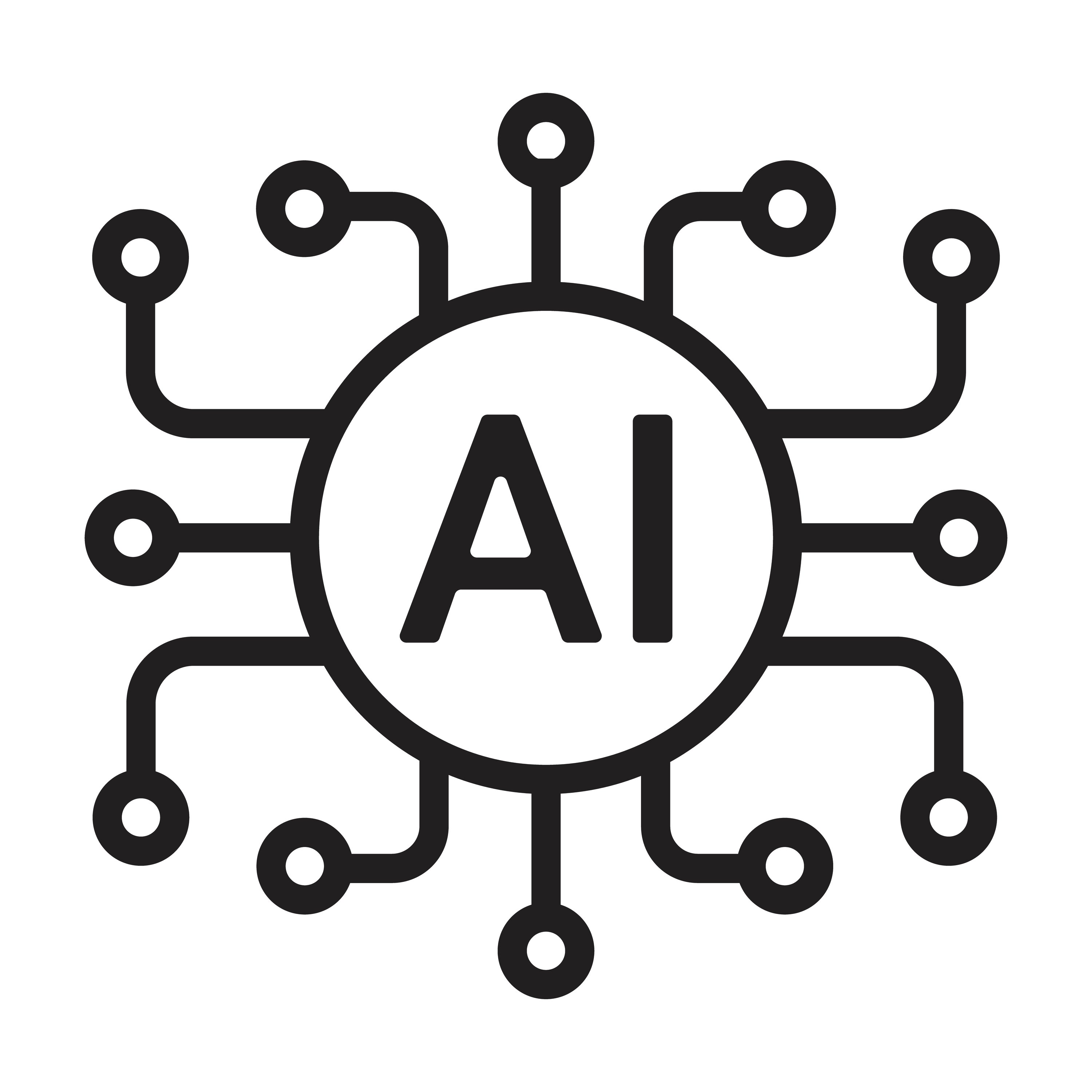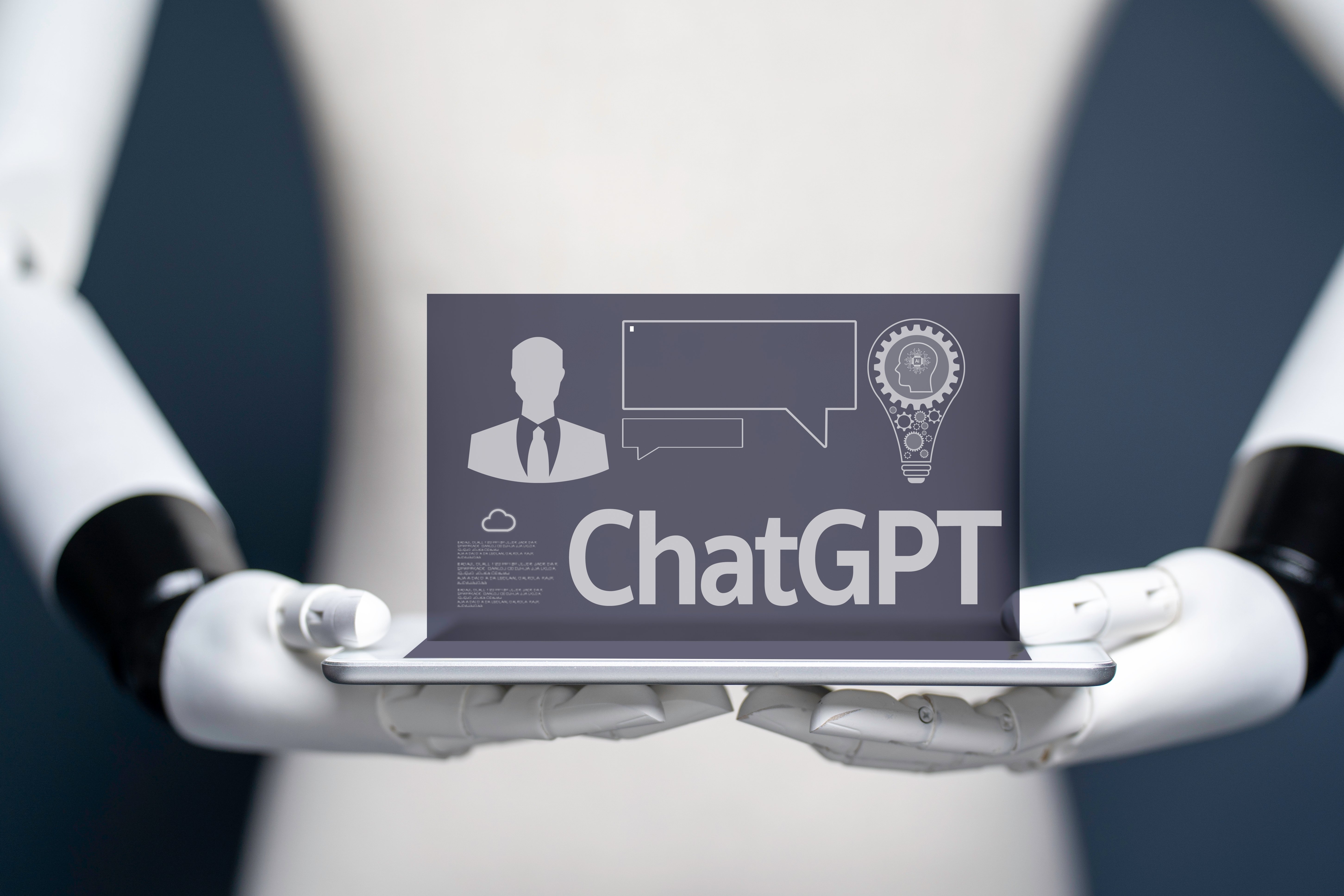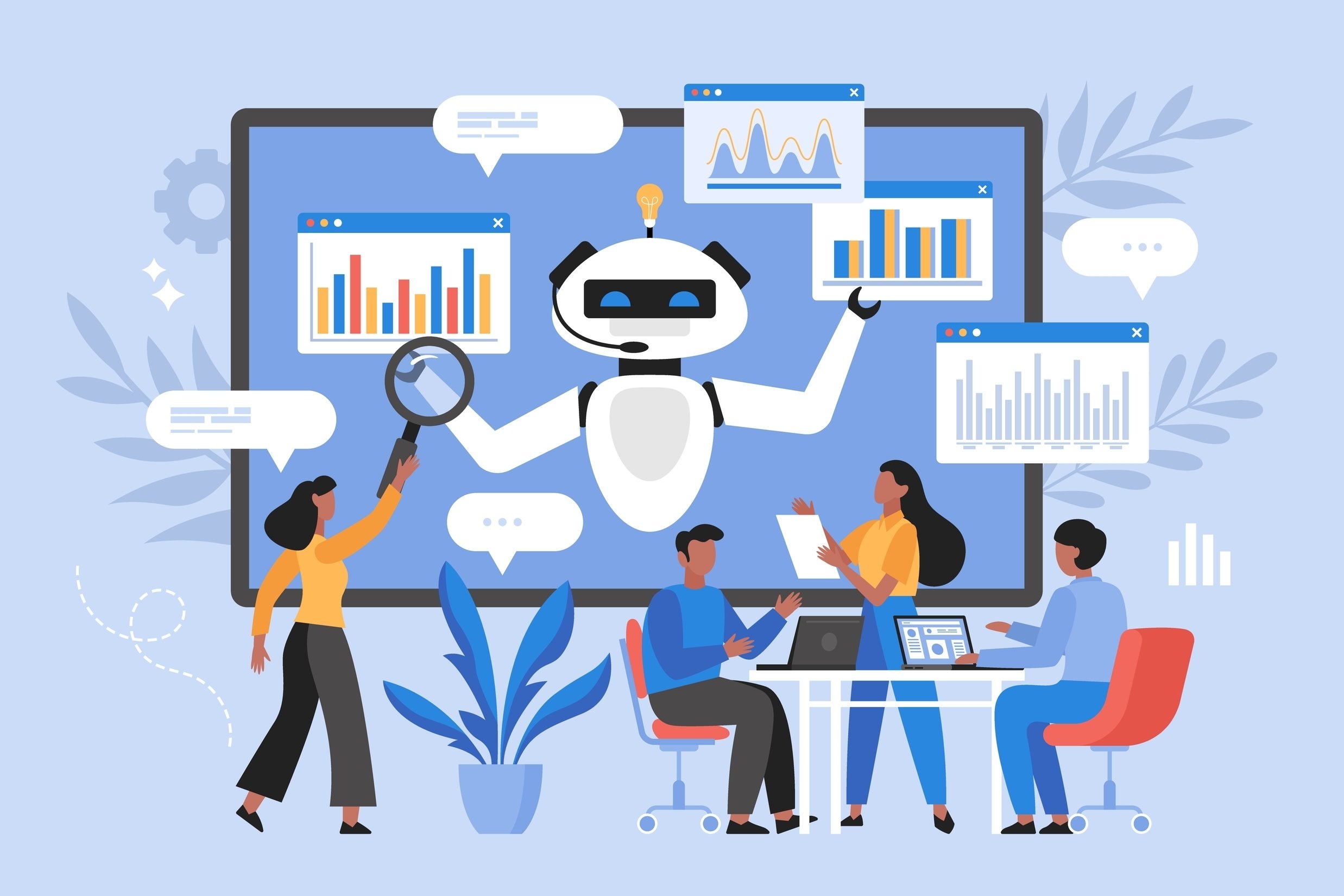
The Role of Artificial Intelligence in Marketing
In the fast-paced world of digital marketing, staying ahead of the curve is imperative. One of the most transformative forces reshaping the landscape is Artificial Intelligence (AI).
From personalized marketing campaigns to predictive analytics, chatbots, and content generation, AI is revolutionizing how businesses connect with their audience and make data-driven decisions. In this blog post, we'll explore the multifaceted role of AI in marketing, highlighting its significance, applications, and future trends.
Table of Contents
- AI in Marketing
- Personalized Marketing
- Customer Support
- Ethical Considerations
- Trends and Challenges
- Final Thoughts
AI in Marketing
Artificial Intelligence (AI) is not just a buzzword; it's a transformative force that's reshaping the marketing landscape. But before we dive into its applications and benefits, let's establish a foundational understanding of what AI means in the context of marketing.
At its core, AI refers to the development of computer systems that can perform tasks that typically require human intelligence. In marketing, AI encompasses a wide range of technologies and applications designed to enhance and streamline various aspects of the marketing process.
Exploring Fundamental Concepts
AI's power in marketing is driven by machine learning, a subset of AI that enables systems to learn from data and improve over time. This means that AI-powered tools and algorithms can process and analyze vast amounts of data—far more than any human could handle—making it possible to uncover valuable insights, patterns, and trends that might otherwise go unnoticed.
Applications in Marketing
AI's reach in marketing extends across the entire spectrum of marketing activities. From data analysis and customer segmentation to personalized content recommendations and chatbots for customer support, AI is changing how businesses connect with their audience and make data-driven decisions.
Benefits of Using AI
The advantages of incorporating AI into your marketing strategies are numerous. It enhances efficiency by automating repetitive tasks, reduces costs, enables personalized marketing campaigns, and provides valuable insights for strategic planning.
Businesses that embrace AI gain a competitive edge by adapting to changing consumer behaviors and staying ahead of the competition. Find out more ways to use AI in marketing here.

Personalized Marketing
In an age where customers are bombarded with information and choices, the one-size-fits-all marketing approach is no longer effective. Consumers expect tailored experiences that resonate with their individual preferences and needs. This is where AI-powered personalized marketing comes into play.
AI-Enabled Personalization
At the heart of personalized marketing is the ability to treat each customer as a unique individual. AI achieves this by analyzing vast amounts of data, including browsing history, purchase behavior, demographics, and more. By harnessing this data, AI can create highly personalized and targeted marketing campaigns.
Imagine receiving product recommendations that align with your interests or receiving messages that speak directly to your needs. This level of personalization not only enhances customer experiences but also significantly improves conversion rates and customer loyalty.
Data Analysis and User Behavior Tracking
Effective personalized marketing relies on robust data analysis and the continuous tracking of user behavior. AI algorithms process this data to generate actionable insights. Marketers can use these insights to tailor their marketing efforts, ensuring that the right message reaches the right audience at the right time.
For example, an e-commerce platform can analyze a customer's past purchases and browsing history to recommend additional products they might be interested in. This not only increases the chances of a sale but also enhances the overall shopping experience.
Real-World Success
Leading companies like Amazon and Netflix have mastered the art of personalized marketing with AI. When you see product recommendations on Amazon or receive movie suggestions on Netflix, it's not a coincidence; it's the result of AI algorithms analyzing your past interactions with their platforms.
These personalized recommendations have led to higher customer satisfaction, increased engagement, and ultimately, more sales.
As businesses strive to connect with their audience on a deeper level and deliver content and offers that truly resonate, personalized marketing powered by AI has become a game-changer. It's not just about showing customers what you have to offer; it's about showing them what they want to see.
Customer Support
In the digital age, providing excellent customer support is not just a competitive advantage; it's an expectation. Customers want quick responses to their queries, assistance with issues, and seamless interactions with brands. This is where AI-powered chatbots are transforming the landscape of customer support.
AI-Powered Chatbots
AI chatbots are virtual assistants that use artificial intelligence and natural language processing to engage with customers in real-time. They provide instant responses to inquiries, help customers navigate websites, and even offer solutions to common problems. What sets them apart is their ability to handle these interactions 24/7, making them a valuable asset for businesses looking to provide round-the-clock support.
Imagine a customer visiting your website late at night with a question about your product. With AI chatbots in place, they can receive immediate assistance, enhancing their experience and increasing the likelihood of conversion. Find some of the best chatbots of 2023 here.
Efficiency and Cost-Effectiveness
One of the key advantages of AI chatbots is their efficiency and cost-effectiveness. Unlike human agents, chatbots don't require breaks, sleep, or time off. They can handle multiple customer inquiries simultaneously, reducing wait times and ensuring that customers receive timely responses.
By automating routine interactions, AI chatbots free up human support agents to focus on more complex issues that require empathy and problem-solving skills. This not only improves the efficiency of your support team but also leads to higher job satisfaction among your agents.
Real-Life Success Stories
Several leading companies have successfully implemented AI chatbots to enhance customer experiences. IBM's Watson Assistant, for example, assists customers in various industries, from healthcare to banking. H&M's chatbot helps customers find the perfect fashion items, offering personalized recommendations and style advice.
These real-life success stories demonstrate how AI chatbots can streamline customer support, reduce response times, and provide valuable assistance, ultimately leading to increased customer satisfaction and loyalty.
As businesses continue to prioritize exceptional customer support and seek ways to scale their operations, AI chatbots have emerged as a powerful tool. They not only improve efficiency but also ensure that customers receive the support they need when they need it.

Ethical Considerations
As we explore the remarkable capabilities of AI in marketing, it's crucial to pause and reflect on the ethical implications of this powerful technology. While AI has the potential to transform marketing strategies and customer experiences, it also brings forth ethical challenges that require careful consideration.
Privacy Concerns
One of the primary ethical concerns in AI marketing revolves around data privacy. AI relies on vast amounts of data to personalize marketing campaigns and make predictions.
However, this reliance on data raises questions about how personal information is collected, stored, and used. Marketers must be transparent about data collection practices and ensure compliance with data protection regulations such as GDPR (General Data Protection Regulation).
Transparency and Trust
Maintaining transparency is essential for building trust with customers. When AI is at the heart of personalized marketing, customers have the right to know how their data is being used and how AI algorithms influence the content they see. Transparency builds trust and helps customers feel more comfortable interacting with AI-driven systems.
Responsible AI Usage
AI algorithms can inadvertently perpetuate biases present in the data they are trained on. This can result in biased recommendations or discriminatory practices. Businesses need to implement responsible AI usage by continually monitoring and addressing biases in AI systems. This includes ongoing training and evaluation to ensure fair and equitable outcomes.
Respect for User Consent
Obtaining user consent is a fundamental aspect of ethical AI marketing. Users should have the option to opt in or opt out of personalized marketing efforts. Respect for user choices regarding data collection and personalized content demonstrates a commitment to ethical practices.
The Human Touch
While AI chatbots and automation are valuable tools, they should complement, not replace, the human touch in customer interactions. There are situations where human empathy and understanding are irreplaceable. Striking the right balance between AI-driven efficiency and human compassion is an ethical imperative.
Trends and Challenges
The role of Artificial Intelligence (AI) in marketing is not static; it's a dynamic field that continues to evolve. As we look ahead, several exciting trends and challenges emerge, shaping the future of AI in marketing.
Voice Search Optimization
Voice-activated devices like smart speakers and voice assistants have gained widespread popularity. Optimizing content for voice search is becoming increasingly crucial. Marketers must adapt their SEO strategies to accommodate voice search queries and provide voice-friendly content.
AI-Driven Content Creation
AI is being used to generate content at scale, from articles and reports to product descriptions and marketing copy. While this can streamline content production, it also raises questions about the authenticity and creativity of AI-generated content. Striking the right balance between human and AI-generated content will be a challenge.
Advanced Data Analytics
AI is poised to revolutionize data analytics. Advanced AI algorithms can uncover insights from data that were previously hidden. As businesses accumulate more data, the ability to derive actionable insights will become a competitive advantage. However, managing and securing vast datasets will pose challenges.
Data Privacy Regulations
As data privacy concerns grow, governments and regulatory bodies are enacting stricter regulations, such as the GDPR and CCPA. Staying compliant with these regulations while using AI for personalized marketing will be an ongoing challenge.
Continuous Learning and Adaptation
AI technologies are continually advancing. Keeping up with the latest developments and integrating them into marketing strategies will require a commitment to continuous learning. Businesses that fail to adapt to new AI capabilities may fall behind.
Ethical AI Usage
Ethical considerations will remain at the forefront. Businesses must navigate the fine line between personalization and intrusiveness, ensuring that AI-driven marketing efforts respect user privacy and preferences.
The Human ElementDespite AI's capabilities, the human element remains invaluable. Balancing AI-driven efficiency with the personal touch of human interaction will be a challenge. Finding the right mix of automation and human engagement is essential.
In conclusion, the future of AI in marketing is promising but not without its challenges. Staying informed about emerging trends, addressing data privacy regulations, and integrating AI technologies responsibly will be essential for businesses seeking to harness the full potential of AI in their marketing strategies.
As we look to the future, the synergy between human creativity and AI-driven efficiency will continue to shape the marketing landscape, delivering personalized, data-driven experiences to customers around the world.

Final Thoughts
In this dynamic world of marketing, the integration of Artificial Intelligence has not only expanded the possibilities but also underscored the need for innovation and ethical responsibility. As we conclude our exploration of AI's pivotal role in marketing, we invite you to embrace this transformative journey.
Whether you're a seasoned marketer or just starting your digital voyage, remember that the future of marketing is intricately woven with AI. As you harness its power, respect its ethical implications, and blend human creativity with AI-driven precision, you're poised to navigate the ever-changing marketing landscape with confidence and purpose. The journey continues, and the possibilities are limitless. Welcome to the era where data, technology, and creativity converge to redefine what's possible in marketing.
Ready to supercharge your marketing strategies with AI-driven precision? Two Trees PPC specializes in harnessing the power of Artificial Intelligence to skyrocket your digital marketing success. Whether you're looking to boost conversions, enhance customer engagement, or stay ahead of industry trends, we've got you covered.
Contact us today and let's embark on a journey to redefine your marketing potential. Our expert team is eager to craft personalized, data-driven solutions that will set your brand apart in the digital landscape.
Don't just keep up with the competition; surpass it with Two Trees PPC Digital Marketing. Let's turn your marketing dreams into reality!
